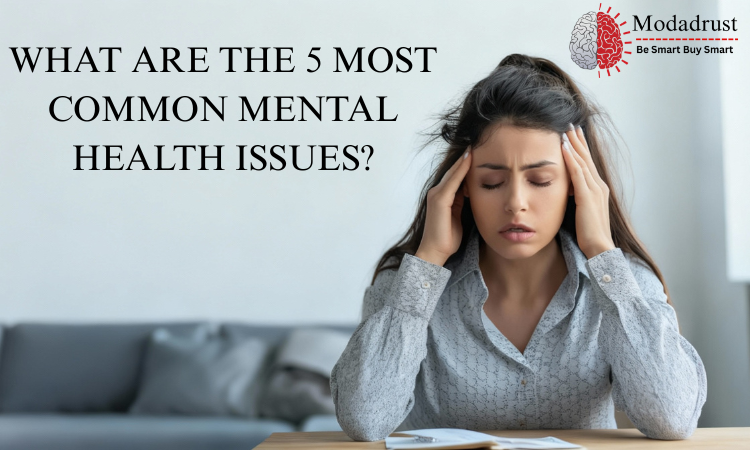Mental health has always been a neglected topic. It is because we wish to appear “normal” in front of people. Sadly, due to lack of awareness and acceptance too, people are too hesitant to come forward and talk about their mental health. Nobody wish to accept that they are battling some sort of mental health disorder let alone going to a psychiatrist to get it treated. Though people do not wish to get “judged” on the basis of how they feel and show their emotions, awareness about mental health wellness is important.
Mental illness or disorder is a condition that hampers a person’s feeling, thinking, and behaviour. As per the medical records, there are more than 200 types of mental health disorders. Mental health issues can affect your ability to communicate to other people, attend school/college/work, and apparently affects your personal life. Different types of mental health issues can give you different types of symptoms with elevating severity. Symptoms may vary from person to person despite being diagnosed with the same type of mental health disorder.
In this article we are going to learn about 5 common mental health disorders. These issues affect a large chunk of global population. If you look closely and try to communicate, you may be surprised to find out that your loved ones are dealing with any of these mental health issues. Let’s dive right into it.
Here are the lists of 5 Common Mental Health Disorders
1. Depression
Affecting around 300 million people worldwide, depression surely is the most common mental health disorder. Women are at higher risk of developing depression than men. People with depression show symptoms such as lack of interest in daily activities, changes in eating pattern, lack of concentration, feelings of low self-esteem or guilt, self worthlessness etc. It is portrayed that too much or too low concentration of serotonin – a neurotransmitter is responsible for the onset of depression symptoms. It is not the whole truth. Apart from elevated serotonin levels, other factors such as physical health issues, genetics, medications, stress, life events etc play an important role too.
Depression can last or recur thus affecting one’s personal and professional life pretty badly. It also has negative impact on all our relationships including romantic ones. Treatment of depression includes oral medicines, therapies such as cognitive behaviour therapy, psychotherapy.
2. Anxiety disorder
It is quite for a person to suffer from anxiety if he had been dealing with depression already and vice versa. Factors such as genetics, life incidences, brain chemistry are responsible for the development of anxiety disorders. Though anxiety is highly treatable disorders, a very few people actually seek treatment. Lack of awareness and knowledge are two reasons for delayed diagnosis of the disorder which further leads to delayed treatment. Oral medicines and psychotherapy are the two best ways to treat anxiety symptoms.
3. Schizophrenia
It is a severe mental health disorder affecting about 23 million people across the globe. This mental illness is characterized by falsifications in behaviour, thinking pattern, sense of self, emotions, feelings of a person. People dealing with schizophrenia experience hallucinations and delusions. Generally, this issue starts in adolescence or early adulthood. Therefore, it has a huge negative impact on one’s overall growth in personal and professional life. People suffering from this issue find it difficult to interact with people and hence they have poor social life. Due to stigma to mental health illness, people with schizophrenia do not get sufficient support which is in fact the best way to deal with this disorder.
4. Dementia
It is a chronic condition that characterizes worsening of cognitive functions past normal ageing. This is a progressive condition impacting about 50 million people across the globe. Dementia affects almost everything including memory, thinking, orientation, language skills, calculation abilities etc. Various health issues that might affect and harm the brain directly are the reasons for the onset of this condition. With no cure in sight, dementia can be managed with palliative treatment.
5. Bipolar Affective Disorder (BPAD)
Affecting approximately 60 million people worldwide, bipolar affective disorder has manic and depressive episodes. Manic episodes can be described as irritable mood, exaggerated self-esteem, lack of desire to fall asleep etc. On the other hand, depressive episodes include feelings of hopelessness, extreme sadness, trouble sleeping, little to no energy etc. No exact cause is known yet. However, it is estimated that the reasons behind the onset of bipolar disorder are genetics, combined effect of neurochemical and environmental factors etc. Medicines and social support work wonder for the treatment of bipolar affective disorder.



